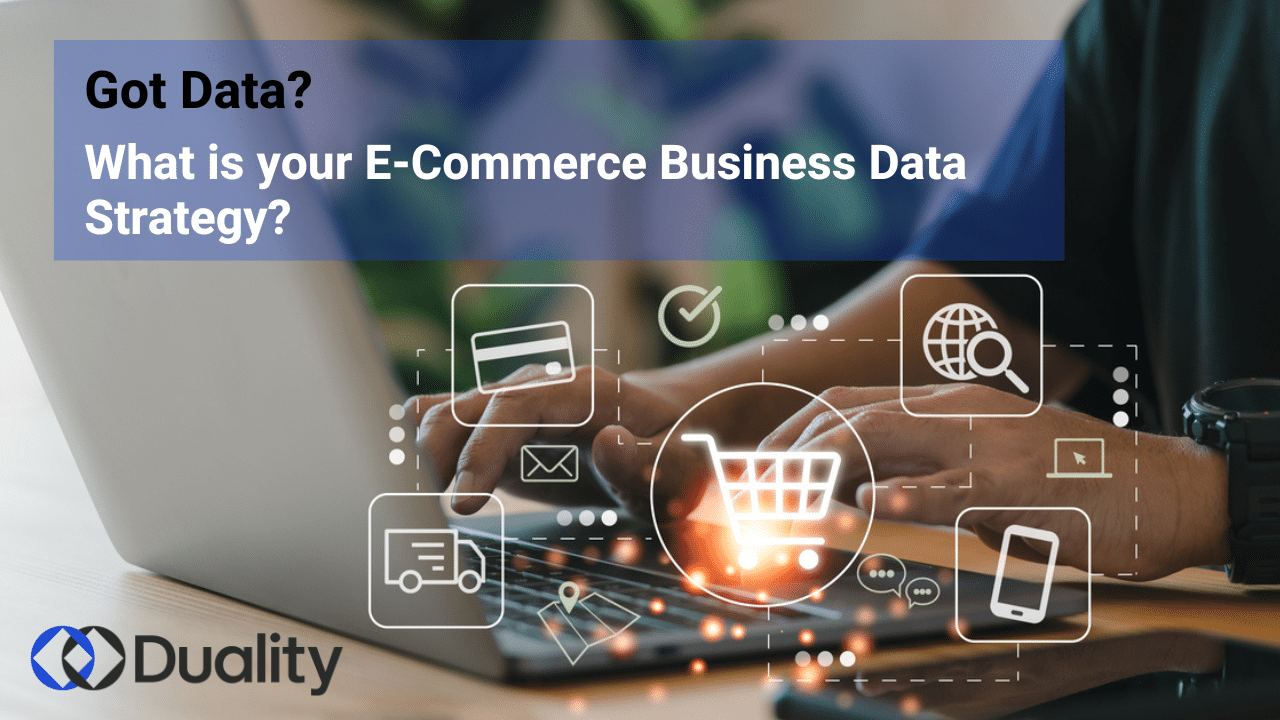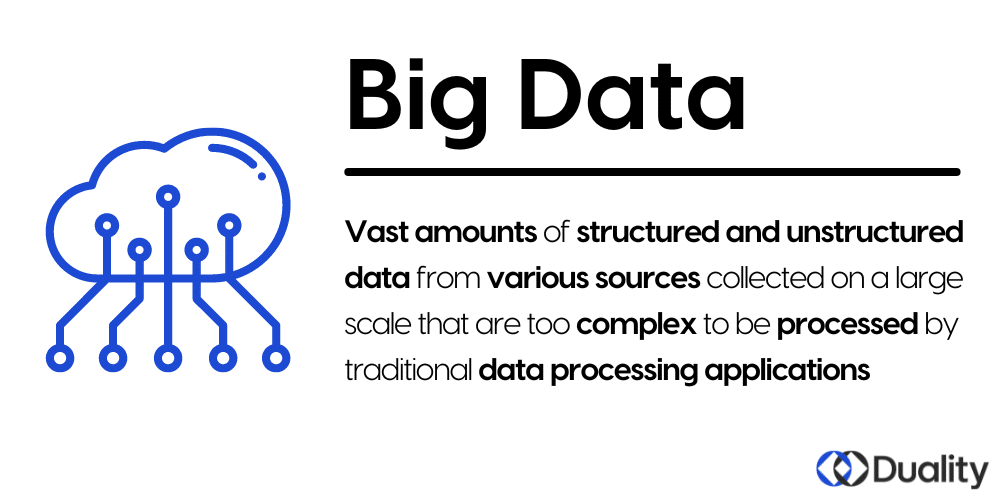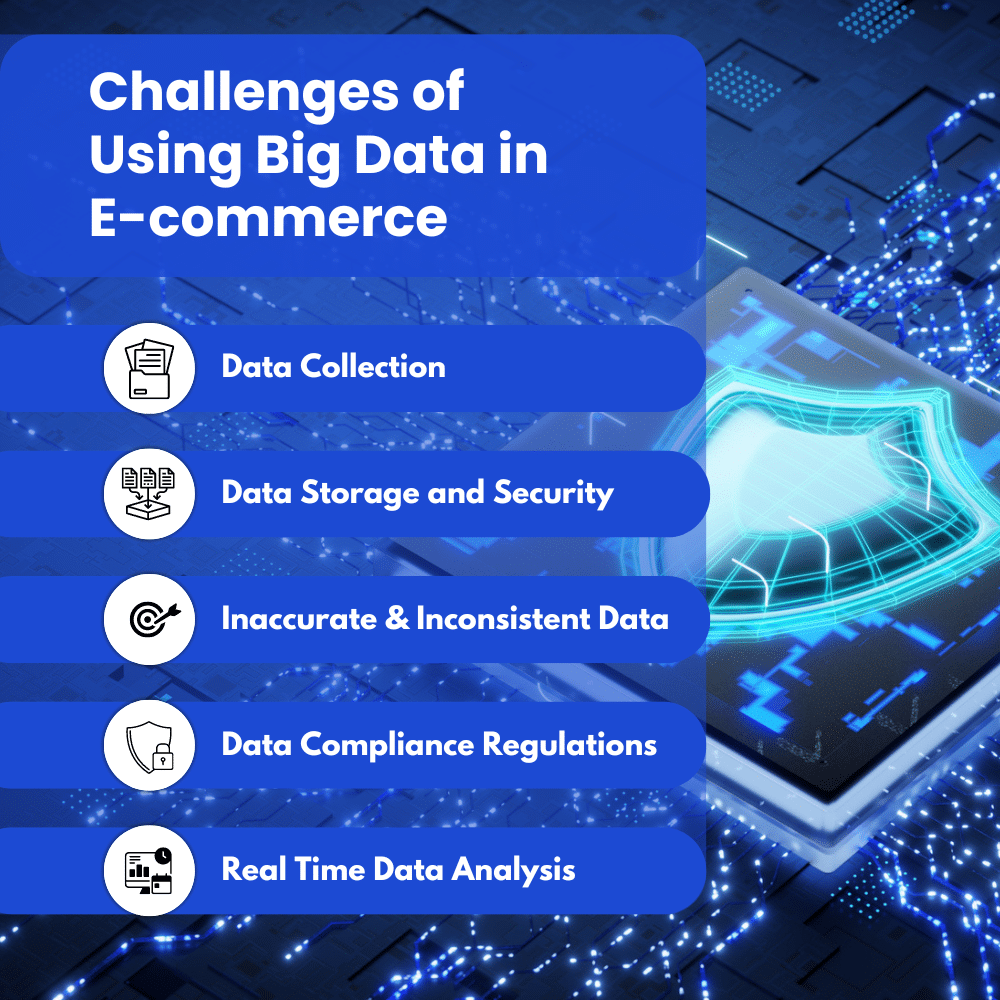
The amount of big data that is collected today has transformed how businesses operate, especially in e-commerce, enabling them to make more informed decisions related to various parts of their business using real-world data. But what exactly is big data, and how can e-commerce companies use it without infringing on privacy regulations or losing customer trust?
Big data refers to both structured and unstructured data that is collected on a large scale and is too complex to be processed by traditional data-processing applications. In the context of e-commerce, big data encompasses a wide array of information gathered from customers and business operations, including customer names, addresses, emails, and billing information, among others. When processed using advanced analytics techniques, this data reveals patterns and trends that can be incredibly useful for business operations and growth.

By analyzing big data, e-commerce platforms can refine their marketing strategies, enhance customer service, and optimize supply chain management and operational efficiency. For example, insights derived from customer purchase patterns can help tailor personalized marketing campaigns that increase conversion rates and encourage repeat business.
However, collecting, storing, and gathering insights from big data can pose some challenges.
While there are many advantages of using big data in e-commerce, leveraging big data is not without its challenges.

Collecting a lot of irrelevant data can hinder processing speeds, waste storage space, and overload systems, making data collection a challenge for many e-commerce stores looking to gain a competitive edge from big data.
Given that e-commerce businesses collect sensitive customer information such as names, addresses, payments, and other PII, securing this data from hackers and ensuring data management practices comply with data protection laws and regulations can be a significant challenge.
With the amount of data collected from multiple sources, it’s likely that conflicting or incorrect information is mixed in, which can stunt the reliability of the insights gathered.
E-commerce businesses must navigate complex data compliance regulations to ensure the lawful and ethical use of customer data, adding another layer of complexity to big data management.
Lastly, there is the challenge of processing, analyzing, and using data in a timely and meaningful way. Since there is a lack of tools that can be used to store, and protect data while extracting valuable insights from it, many online businesses must use sophisticated analytics tools that require skilled professionals like privacy engineers or cryptographers.
Despite these challenges, many e-commerce businesses may not realize the value of the data they are collecting.
E-commerce companies have many opportunities to leverage big data, ranging from enhancing customer engagement to product discovery and streamlining supply chains. Yet, one significant opportunity that many overlook is the potential to monetize the vast amounts of data they collect by becoming a data service provider. Monetizing big data not only stands out as a significant opportunity but also as an often underutilized avenue that can open new revenue streams and enhance market positioning.
E-commerce businesses are often aware of the value their data could bring to other organizations, but the operational complexity of such a service is historically too large to consider. Today, privacy-preserving data platforms like Duality remove much of that complexity opening significant opportunities for growth. This approach allows businesses to offer their data or analytic capabilities as a service to other companies, creating an additional revenue stream. By analyzing the data they gather from customer interactions, purchase histories, and browsing behaviors, e-commerce companies can provide valuable insights to other businesses working with similar populations in different industries or perhaps the same industry but in different geographic regions.
For instance, a fashion e-commerce platform might provide its data to help suppliers predict upcoming trends more accurately, or an online retailer could offer predictive analytics services to help other businesses forecast demand more effectively. This strategy not only provides e-commerce businesses with another revenue stream but also positions them as a leader in their industry, enhancing their market position and opening up new partnership opportunities.
In addition to becoming a data service provider, e-commerce businesses can use big data to enhance their internal operations, processes, and procedures.
Using algorithms to analyze shoppers’ behavior, businesses can offer personalized product recommendations to existing and new customers to improve customer satisfaction.
E-commerce businesses can identify areas to improve customer experience and create a more personalized shopping experience by analyzing feedback, reviews, historical purchasing history, customer preferences, and behavior.
Big data analytics can provide crucial insights into supply chain processes to improve operational efficiency by identifying bottlenecks, energy inefficiencies, and delays.
Big data allows e-commerce businesses to detect fraudulent activities by identifying unusual patterns of behavior in real time, enhancing the security of transactions, and boosting customer trust in the e-commerce platform.
Analyzing big data enables e-commerce businesses to adjust the prices of their products based on factors like demand, competitor pricing, customer buying habits, and seasonal trends.
Big data enables e-commerce companies to forecast trends and anticipate demands more accurately, helping them make proactive decisions to stay ahead of market shifts.
Big data analytics helps e-commerce businesses improve their inventory levels by analyzing historical data, demand forecasts, and market trends to ensure that businesses maintain inventory levels to meet their customer demand while minimizing the costs of storing excess inventory.
Utilizing analytics and insights from big data, online stores can tailor their marketing campaigns to target specific customer segments with personalized offers and promotions.
By leveraging big data analytics, e-commerce businesses can make data-driven decisions to improve various aspects of their operations and maximize profitability based on actionable insights derived from comprehensive big data analysis.
The most successful e-commerce businesses are those that can effectively use big data not only to improve and personalize their services and product offerings but also to monetize the data they collect. Many companies are recognizing the potential to become data service providers, creating new revenue streams by offering actionable insights and analytics as a service to other businesses. However, in their pursuit to leverage and monetize big data, e-commerce businesses often face significant challenges, including protecting the data, lacking the technical skill sets or time to manage and analyze it effectively, and ensuring compliance with privacy regulations.
This is where Duality Tech’s data collaboration platform provides an essential solution, allowing e-commerce businesses to effectively, efficiently, and safely collaborate on big data. Founded by leading cryptographers and data scientists, our platform is designed to enable businesses to securely collaborate on sensitive data, gathering insights and predictive analytics while protecting customer privacy and complying with data privacy regulations.
With Duality Tech, companies can engage in secure open data flows, allowing for cross-border and cross-domain collaboration while safeguarding data privacy. Our platform leverages multiple privacy-enhancing technologies (PETs), to enable secure machine learning, and analytics on encrypted data. This allows businesses to use and monetize their data without needing to be experts in cryptography or privacy engineering.
Contact us today to learn more about how we can help you collect, store, protect, and use big data to make better business decisions and explore new revenue opportunities for your e-commerce store.


